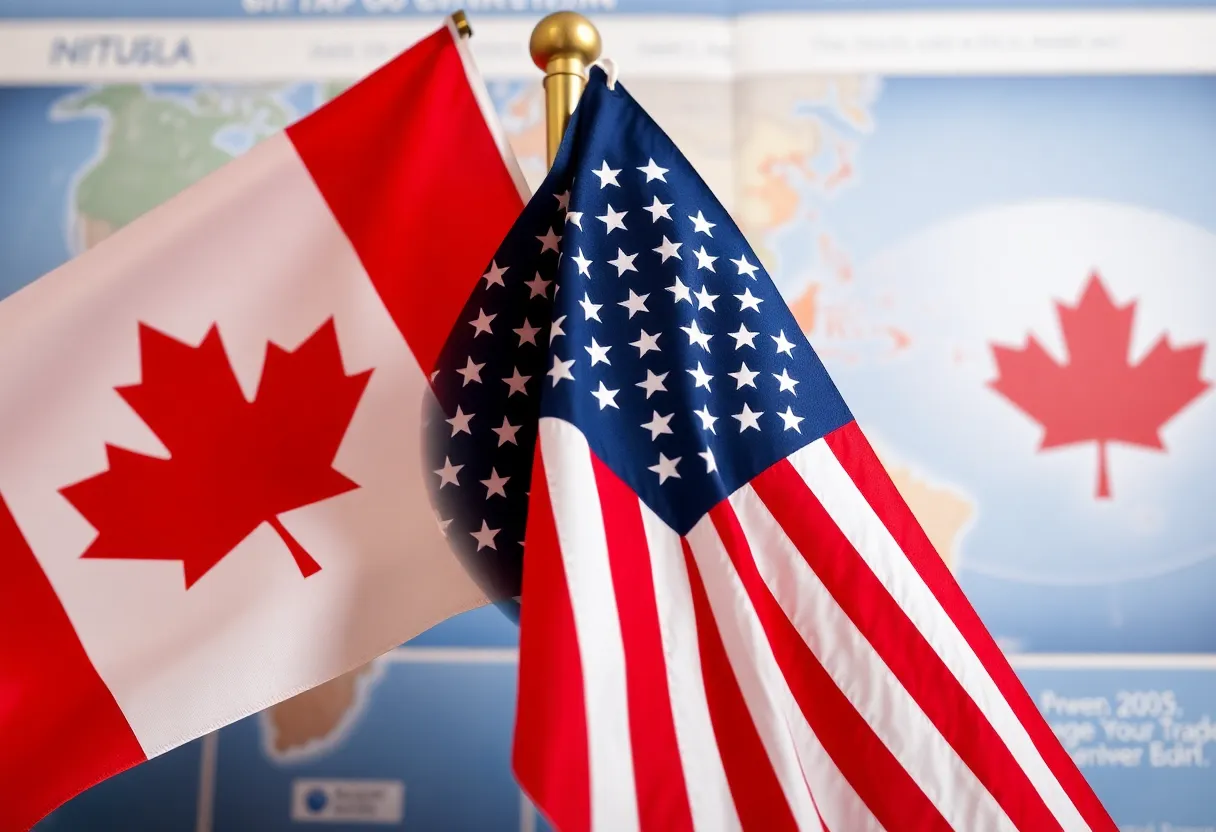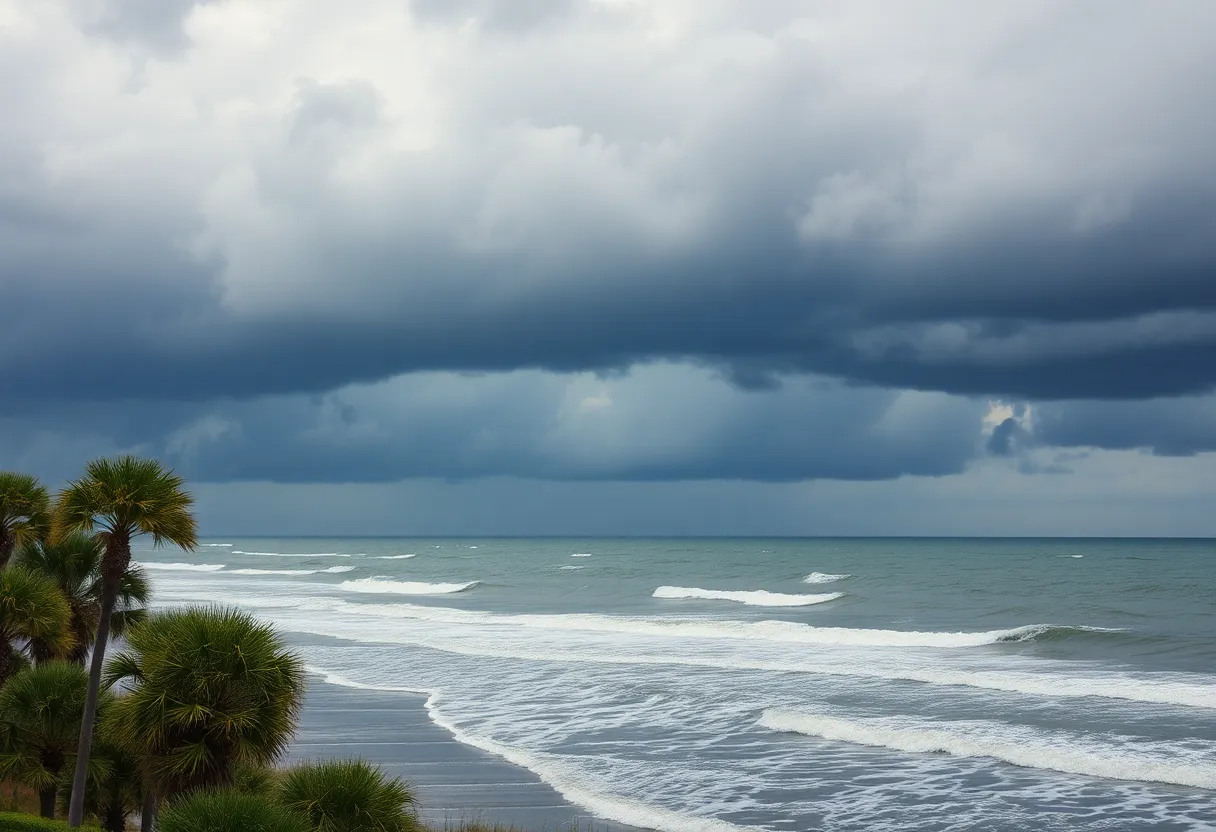News Summary
Canadian Prime Minister Justin Trudeau inadvertently disclosed discussions about former President Trump’s serious interest in annexing Canada. This revelation highlights Trump’s belief that such a move could solve U.S. economic issues, particularly regarding access to critical minerals. Trudeau’s comments, made during a session with business leaders, prompted responses from Canadian officials reinforcing the country’s sovereignty and independence. As trade relations continue to evolve, the looming specter of annexation raises significant concerns about Canada’s future in a complex relationship with the U.S.
Trudeau Addresses Trump’s Annexation Interest
In a rather unusual twist of events, Canadian Prime Minister Justin Trudeau found himself in the spotlight after unintentionally revealing some behind-the-scenes discussions about U.S. President Donald Trump’s serious interest in absorbing Canada as the 51st state. This revelation came during a closed-door session with local business and labor leaders, but the conversation unexpectedly broadcasted via loudspeaker.
Understanding Trump’s Perspective
Trudeau’s remarks shed light on Trump’s expressed belief that annexing Canada could enhance U.S. access to valuable critical minerals. The Prime Minister indicated that the former president sees this move as a straightforward solution to various economic problems. In emphasizing the seriousness of this prospect, Trudeau mentioned that Trump believes the easiest way to gain such access is to simply incorporate Canada into the U.S. This statement was pretty striking, hinting that annexation was indeed a topic of serious consideration for the former president.
Voices from the Canadian Political Scene
Alberta Federation of Labor President, Gil McGowan, supported Trudeau’s insights by suggesting that Trump harbors ambitions of not only dominating Canada but might even endorse the idea of outright annexation. Such sentiments resonate with statements Trump has made publicly, including remarks about how Canadians would benefit from becoming a U.S. state.
Trade Talks and Tariffs
The atmosphere was further charged when Trump delayed proposed tariffs on Canadian imports amid ongoing discussions about trade relations. This development came as Canada continued to grapple with its trade balance with the U.S., particularly regarding energy exports. Interestingly, the sizable trade deficit Canada experiences primarily arises from American demand for Canadian energy products rather than a perceived subsidy to the north.
Canada’s Resiliency and Response Strategy
In light of these tensions, Trudeau emphasized the importance of Canadian internal trade and economic diversification. The Canadian Chamber of Commerce’s Candace Laing underscored the urgency for bold action to enhance resilience against the pressures being exerted by the U.S. Notably, Trudeau and his cabinet members strongly reiterated Canada’s sovereignty and independence amidst Trump’s annexation threats. Employment Minister Steven MacKinnon and Transport Minister Anita Anand were vocal in making it clear that Canada firmly rejects any notion of annexation.
Diplomatic Tug-of-War
What adds an intriguing layer to the situation is Trump’s referencing a century-old treaty regarding U.S.-Canada border delineation during discussions with Trudeau, implying it might support claims over Canadian territory. This kind of diplomatic tug-of-war has without a doubt raised eyebrows, especially as past months saw Trump disparaging Canadian trade agreements while pushing for renegotiations of the United States-Mexico-Canada Agreement (USMCA), which is set for renewal in 2026.
The Bigger Picture
As the conversations unfolded, many business and labor leaders present began discussing relevant topics like interprovincial trade barriers, emphasizing a collective effort to strengthen Canada’s economy. Trudeau’s comments certainly highlighted the need for a strategic response to the U.S.’s ever-changing approach to trade and political relations. The atmosphere was intense, with many recognizing that while negotiations remain crucial, it’s equally important to maintain a firm footing on issues of sovereignty.
A Future in Question?
In the midst of all this, Trudeau’s position as Prime Minister has come into question, especially with his announcement of plans to resign amid declining support for his leadership. As Canada stands at the crossroads with the U.S., the prospect of annexation looms over these discussions, leaving many Canadians wondering about their future in this intricate relationship with their neighbor to the south.
The ongoing exchanges between Canada and the U.S. continue to evolve, raising critical questions about governance, economy, and independence. As this diplomatic storyline unfolds, both sides will need to navigate the complexities with care and consideration.
Deeper Dive: News & Info About This Topic
- The New York Times: Trudeau Addresses Trump’s Annexation Interest
- Bloomberg: Canada’s Fury with Trump
- The Guardian: Trudeau on Trump’s Annexation Plans
- Google Search: US-Canada relations
- The New York Times: US-Canada Relations and Tariffs







